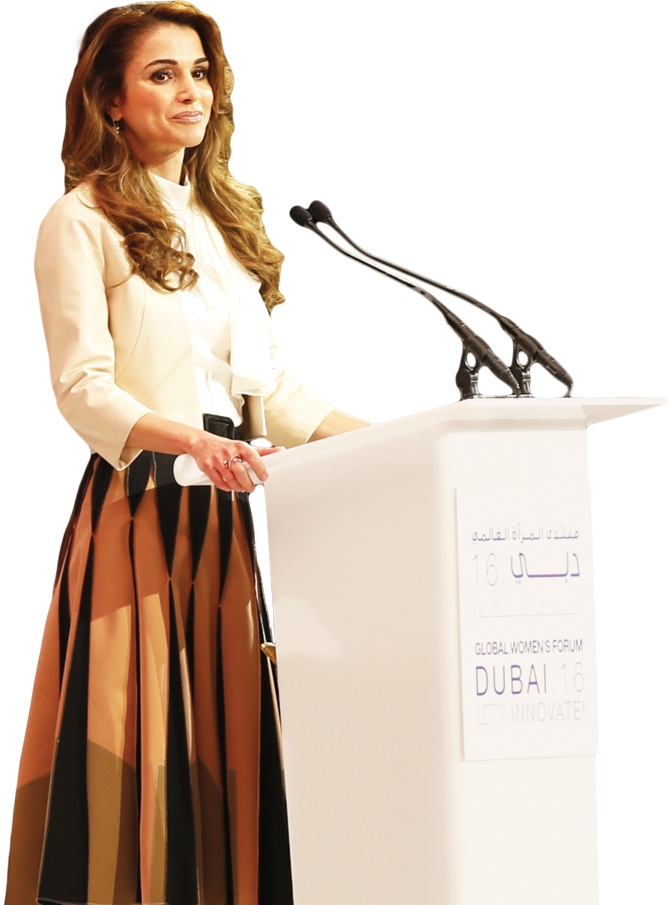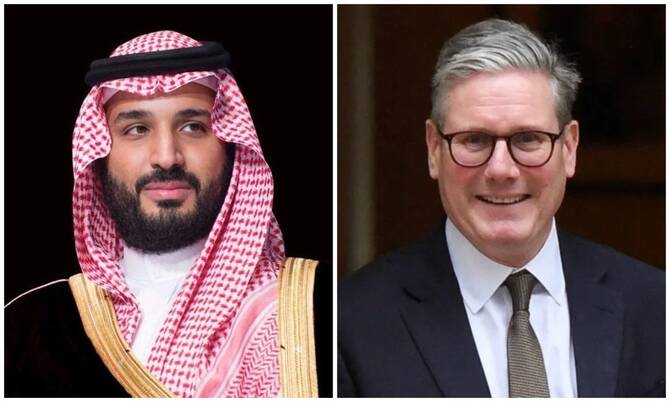DUBAI: As the world marks yet another International Women’s Day (IWD), the resonance of an occasion dedicated to celebrating the achievements of women in different fields is being felt in a changing Middle East.
IWD has been observed on March 8 for well over a century, with the first gathering in 1911 supported by more than a million people. Of late, IWD has been celebrated across the Arab region with calls to action for more gender equality.
Still, progress remains mixed. As experts who spoke at the recent Global Women’s Forum Dubai noted, achieving gender equality in the Middle East and North Africa (MENA) region is a key driver of change, yet the region’s female workforce participation level is the lowest in the world.
According to a McKinsey & Company analysis, women’s participation in the MENA labor force stands at 24.6 percent, compared with 77.1 percent for men and a world average of 47.8 percent (the corresponding figure for men’s participation is 75.2 percent).
INNUMBERS
- 30% of researchers in tech, humanities and various sciences (natural, medical and health, agricultural and social) are women.
- 20% of landholders are women, which limits economic opportunities for female farmers.
- 700 million women alive today were married before age 18, including 250 million who were married before 15.
- Source: UN Women
“It’s purely a women problem,” said Chiara Marcati, a partner at McKinsey & Company. “It matters if you think about the future and the Fourth Industrial Revolution.”
The Fourth Industrial Revolution refers to the emerging technology breakthroughs in fields such as artificial intelligence, robotics, the Internet of Things, autonomous vehicles, energy storage and quantum computing.
Marcati pointed to a number of developments, including advances in automation, that will impact repetitive and labor-intensive tasks in male-dominated sectors.
“It’s good news in the sense that it won’t directly impact women, but it’s also an opportunity for women,” she said. “Only 15 percent of women will be directly impacted, so they can access sectors that are traditionally dominated by males.
“Imagine if we have the first woman miner from Saudi Arabia who will (do her job) from her living room. That’s what automation can offer.”
That being said, with demand for technological skills set to rise 55 percent by 2030 and digital advancements transforming many occupations, women will need to expand their capabilities to stay competitive.

Queen Rania of Jordan has been a long time advocate of greater female empowerment in the Middle East and North Africa region. (AFP)
“At the moment, it’s not the case,” Marcati said. “Women are a step behind compared with men (in technological skills). So, if we want to stay competitive, digitization needs to be on our mind.”
The situation is no different in online activity, with women in MENA countries underrepresented on different platforms.
Only 28 percent of women in the region are online compared with 44 percent globally, and they apply for 20 percent fewer jobs than men, according to Marcati.
“Online platforms are a beautiful tool for women to access jobs,” she said.
“Networking and developing professional relationships that could create opportunities for jobs was traditionally conducted in a majlis.
“The majlis was a hub of professional networking, but women weren’t allowed there. So (being active online) will give women fantastic access.”
According to Pedro Conceicao, director of the UN Develop Program’s Human Development Report office, the period from 2010 to 2014 saw a “shocking” reinforcement of social norms worldwide that reflected antipathy towards gender equality.
“It was quite puzzling,” he said, adding: “Part of the pushback was actually happening in some of the countries (with) the highest substantive achievements in gender equality.”
Opinion
This section contains relevant reference points, placed in (Opinion field)
What the experience showed, Conceicao said, is that the achievement of gender equality is a never-ending struggle.
“It always needs to be energized,” he said. “It’s a job that’s never done, and especially as women come to more powerful positions, we see that this pushback becomes more intense.”
If efforts to close the employment gender gap succeed, economies will benefit from growth, as proven in places such as the US and Europe throughout the 20th century, according to Conceicao.
“It had a big payoff in economic growth,” he said. “The big game changer is that women aren’t just like men when they come into the (picture). They bring diversity, creativity and new perspectives. Firms in which women are represented in senior management and boards yield higher returns.”
Conceicao’s view was seconded by Marcati, who said enterprises fully or partially owned by women generate two and a half times more return on investment than other kinds, even though only a quarter of Arab start-ups belong in that category.
“Humankind has become very creative in inventing jobs,” she said. “The new generation are self-starters. However, the starting point (in the Arab region) is not good, so we need to work on this.”
In regard to the Fourth Industrial Revolution, according to Marcati, the challenge lies in improving the level of women’s participation in technical and professional work that plays a key role in shaping the future of society.
Here again, figures from the MENA region are abysmal: For every 10 men in such roles in the GCC, there are three women. In Saudi Arabia in particular, for every four men holding technical and professional jobs, there is one woman.
“We have to change the (situation) if we want to be somewhat active in the future,” Marcati. “It is of paramount importance.”
MILESTONES
- June 21, 1946 - UN-backed Commission on the Status of Women is established as the first global intergovernmental body exclusively dedicated to the promotion of gender equality and women’s empowerment.
- March 8, 1975 - UN begins commemorating International Women’s Day and the UN General Assembly officially formalizes the day two years later.
- June 19-July 12, 1975 - The first World Conference on Women takes place in Mexico where a 10-year World Plan of Action for the Advancement of Women is prepared.
- Sept. 4-15, 1995 - At the fourth UN World Conference on Women, a progressive blueprint for women’s empowerment known as The Beijing Platform for Action is drawn up.
- Sept. 6-8, 2000 - World leaders adopt UN Millennium Declaration. Goal 3 calls for the promotion of gender equality, Goal 5 for improving maternal health.
- Jan. 30, 2007 - With the adoption of Security Council Resolution 1325, multiple calls are made to increase women’s participation in civilian, police, and military components of peacekeeping operations.
- Sept. 5, 2013 - Domestic Workers Convention (C189) on labor rights takes effect, giving this category of workers, most of whom are women, the same basic labor rights as other workers.
For all the energy expended, gender balance remains elusive, not just in the Middle East but the world, where women are granted only three-quarters of the legal rights men enjoy.
Experts point the finger at laws that they say are particularly discriminatory when it comes to treatment of married women vis-à-vis married men.
Other barriers have to do with the lack of support for childcare and elderly care.
“Around the world, lack of care is a huge constraint,” said Caren Grown, senior director for gender at the World Bank Group.
“Many transportation systems are also unsafe, even though more women rely on them than men.”
Although technology is viewed as a crucial enabler, far fewer women than men have a phone or internet access. And due to the way in which income and wealth is distributed, women do not earn as much, she said.
“We are learning to change the systems that would allow women to take part in a level playing field,” Grown said.
“There are still many gaps, and there are good approaches to address and close them quickly. We cannot wait 75 years.”
In Grown’s view, gender parity is not a matter of merely achieving the right targets; women have to participate with men and, at the same time, institutions, markets, laws and policies must change.
“You have to make a workplace empowering for women,” she said. “In transport ministries of some of the lowest-income countries we work with, there’s not even a single women’s bathroom.
“If you don’t have the basic enabling infrastructure, you have to implement changes in workplace policies and in acceptable standards of behavior.”
To speed up the process, Marcati suggested a set of targeted interventions, one of them being education to create awareness.
“We have to revisit all curricula so they cover skills women need to succeed,” she said.
Governments and CEOs can do their bit “by fixing structural foundations, effecting regulatory changes, influencing critical policy drivers, and devising work policies that promote gender inclusion and diversity.”
Finally, what is needed is a conducive environment that will “call out bias” and encourage efforts to promote networking and mentoring.
“But it’s not enough,” Marcati said. “The real change starts from within.”















